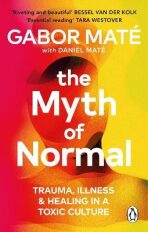0.0 z 5 hvězdiček
knihaKniha ( pevná vazba )
- Produkt je nedostupný.
Understanding cooperation as a distinctly human combination of innate and learned behavior. Drop something in front of a two-year-old, and she's likely to pick it up for you. This is not a learned behavior, psychologist Michael Tomasello argues. Through observations of young children in experiments he himself has designed, Tomasello shows… Přejít na celý popis
 Třetí díl slavné Lucemburské epopeje od prověřeného romanopisce Vlastimila Vondrušky popisuje další zajímavou část české historie.
Více informací
Třetí díl slavné Lucemburské epopeje od prověřeného romanopisce Vlastimila Vondrušky popisuje další zajímavou část české historie.
Více informací
K tomuto produktu zákazníci kupují
-

-

-

-

-

-

-

-

-

-

-

-

-

-

-

-

-

-

-

-

-

-

-

-

Understanding cooperation as a distinctly human combination of innate and learned behavior.
Drop something in front of a two-year-old, and she's likely to pick it up for you. This is not a learned behavior, psychologist Michael Tomasello argues. Through observations of young children in experiments he himself has designed, Tomasello shows that children are naturally--and uniquely--cooperative. Put through similar experiments, for example, apes demonstrate the ability to work together and share, but choose not to. As children grow, their almost reflexive desire to help--without expectation of reward--becomes shaped by culture. They become more aware of being a member of a group. Groups convey mutual expectations, and thus may either encourage or discourage altruism and collaboration. Either way, cooperation emerges as a distinctly human combination of innate and learned behavior. In Why We Cooperate, Tomasello's studies of young children and great apes help identify the underlying psychological processes that very likely supported humans' earliest forms of complex collaboration and, ultimately, our unique forms of cultural organization, from the evolution of tolerance and trust to the creation of such group-level structures as cultural norms and institutions. Scholars Carol Dweck, Joan Silk, Brian Skyrms, and Elizabeth Spelke respond to Tomasello's findings and explore the implications.
- Nakladatel
- MIT Press
- Rozměr
- 124 x 185 x 23
- jazyk
- angličtina
- Počet stran
- 208
- Vydání
- 1
- isbn
- 978-0-262-01359-8
- Vazba
- pevná vazba
- datum vydání
- 1.08.2009
- ean
- 9780262013598
Hodnocení a recenze čtenářů Nápověda
0.0 z 5 0 hodnocení čtenářů
0× 5 hvězdiček 0× 4 hvězdičky 0× 3 hvězdičky 0× 2 hvězdičky 0× 1 hvezdička
Přidejte své hodnocení knihy
Vývoj ceny Nápověda
Získejte přehled o vývoji ceny za posledních 60 dní.
Články, které stojí za pozornost
-

-

-

-

-

-

-

-

-

-

-

-





